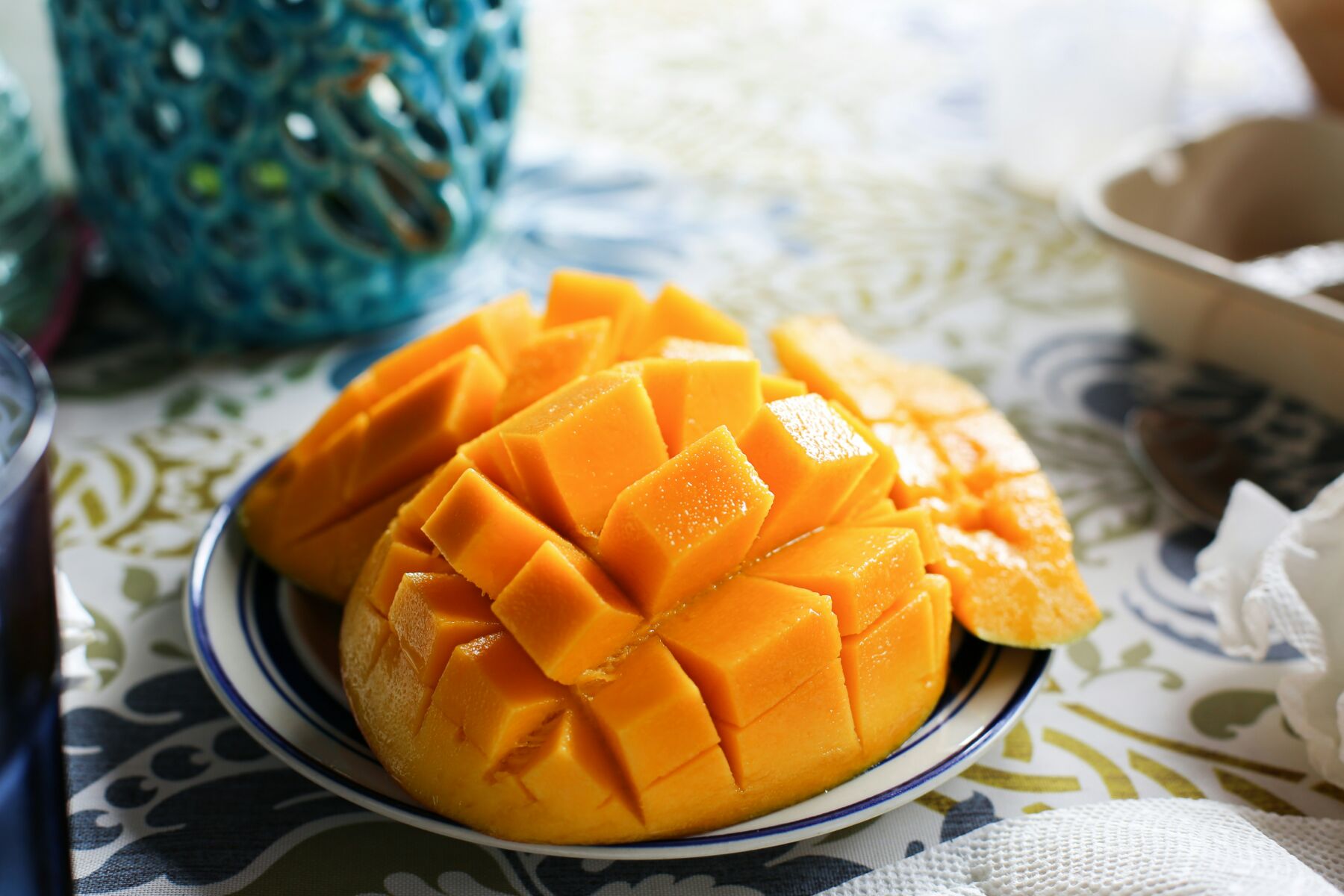Mangoes are beneficial for pregnant women and older individuals

Known as “Mamuang” in Thai, the mango, revered as the king of fruits, is a staple in both sweet and savoury dishes in Thailand. Tourists flock to the streets of Bangkok or Phuket, eager to indulge in local delights like mango with sticky rice or crispy catfish with mango salad.
This subtropical fruit, with its unique flavour, is not only a crowd favourite but also holds a significant cultural and medicinal value in Thai society. But beyond its culinary appeal, recent scientific research reveals that mangoes can play a crucial role in improving the nutritional intake of pregnant women and older adults.
The cultural and culinary significance of mangoes in Thailand
In Thailand, mango season spans from late March to July, during which the streets are lined with vendors selling raw mangoes and a variety of mango-infused dishes. From Bangkok to Phuket, and Chiang Mai to the islands along the eastern and western coasts, mangoes are omnipresent. This period is a visual and gastronomic delight, with every supermarket showcasing a dedicated mango section and restaurants offering an array of mango-based desserts and dishes.
Thai people utilise mangoes not only for their taste but also for their medicinal properties. Traditional uses include boiling mangoes or creating drinks to reduce fever, alleviate stomach aches, or even clean wounds. This multifaceted use of mangoes highlights their integral role in Thai culture and everyday life.
Scientific discoveries: Mangoes and nutritional intake
Recent research published in the journal Nutrients highlights the significant health benefits of incorporating mangoes into the diets of women of childbearing age (WCA) and older adults. Conducted by scientists using data from the National Health and Nutrition Examination Survey (NHANES), the study shows that mango consumption is associated with improved diet quality and increased intake of essential nutrients.

Benefits for pregnant women
Pregnant women have unique nutritional needs, often unmet by their regular diets. The study analysed data from 16,744 women aged 15 to 44 years, revealing that those who included mangoes in their diets had significantly higher intakes of key nutrients. These nutrients are critical for a healthy pregnancy and are often under-consumed by 10-30% of pregnant women. The study found that by consuming mangoes, these pregnant women increased the intake of the following nutrients by the percentages indicated:
Vitamin C intake – increased by 70%
Fibre intake – increased by 31%
Vitamin E intake – increased by 30%
Folate intake – increased by 26%
Magnesium intake – increased by 16%
Potassium intake – increased by 11%
Dr Kristin Fulgoni, co-author of the study, emphasised the importance of diet in preventing pregnancy-related health conditions like gestational diabetes and hypertension. Mangoes contribute to the intake of nutrients that are associated with reducing these risks, including fibre, folate, magnesium, potassium, and vitamin E.
Advantages for older adults
Older adults, aged 60 and above, also benefit significantly from mango consumption. The study revealed a 13% higher Healthy Eating Index (HEI) score among older mango consumers compared to non-consumers. Key nutritional benefits for older adults included higher intakes of fibre and vitamin C, alongside lower intakes of cholesterol, niacin, phosphorus, protein, riboflavin, saturated fat, and vitamin B12.
The higher HEI scores among mango consumers suggest a better overall diet quality. Researchers also noted that older mango consumers had a higher percentage of individuals identifying as vegetarian or vegan, which could explain the lower intake of certain nutrients commonly found in animal products.
Study design and methodology
The study utilised NHANES data spanning from 1988-1994 and 1999-2018, with dietary recalls determining food and nutrient intakes. Mango consumers were defined as those who ate any amount of raw mango as reported in the dietary recalls. Diet quality was assessed using the HEI-2020, which provides a maximum score of 100 based on 13 subcomponents reflecting the 2020 Dietary Guidelines for Americans (DGA).
Strengths of the study included a large sample size of mango consumers and the use of several NHANES cycles. However, limitations such as the observational nature of NHANES and reliance on dietary recalls, which are prone to misreporting, were acknowledged. Despite these limitations, the findings offer valuable insights into the potential benefits of mango consumption.
Nutritional equity and the dietary guidelines
Nutritional equity is a priority in current research, focusing on ensuring all individuals have access to healthy food and adequate nutrient intake. The DGA’s life-stage approach addresses the unique needs of subpopulations, including pregnant and lactating females (PLFs) and older adults. Both groups face challenges in meeting their nutritional needs, with many falling below the estimated average requirement (EAR) for several nutrients.
The DGA recommends increased consumption of iron, folate, calcium, magnesium, protein, fibre, potassium, and vitamin D for PLFs. For older adults, nutrient-dense food choices are crucial due to their lower energy requirements and higher nutrient needs.

Impact on pregnant women and older adults
The study’s findings suggest that incorporating mangoes into the diets of PLFs and older adults can significantly improve their nutrient intake and diet quality. For PLFs, a higher intake of nutrients like folate, magnesium, fibre, potassium, and vitamin E could help address common inadequacies. Improved diet quality is also associated with a lower risk of conditions such as gestational diabetes, preeclampsia, hypertension, and excessive gestational weight gain (GWG).
In older adults, higher diet quality and nutrient intake can help prevent chronic diseases like heart disease, cancers, and bone/muscle diseases. The study also found that older adults who consumed mangoes had lower intakes of protein and associated nutrients, which may be linked to a higher likelihood of following vegetarian or vegan diets.
Future directions and conclusions
The study underscores the importance of incorporating mangoes into the diets of pregnant women and older adults to enhance nutrient intake and diet quality. While the research highlights the benefits of mango consumption, further studies are needed to explore the causal relationships and long-term impacts on health.
Ensuring access to mangoes and other nutrient-dense fruits can help bridge nutritional gaps and support overall health in these vulnerable populations. As research continues to uncover the benefits of specific fruits, mangoes stand out as a valuable addition to a balanced diet, offering both nutritional and cultural richness.
Mangoes are more than just a beloved fruit in Thailand—they are a nutritional powerhouse with the potential to improve health outcomes for pregnant women and older adults. By incorporating mangoes into their diets, these populations can achieve better nutrient intake, enhanced diet quality, and a lower risk of health conditions, making mangoes a vital part of a healthy lifestyle.
It is important to have all of the nutrients that our bodies need to live healthily. To do so, you need to keep up with what vitamins and minerals are missing from your body through checkups and consultations which you could receive from contacting and visiting MyMediTravel.
Latest Thailand News
Follow The Thaiger on Google News:


























